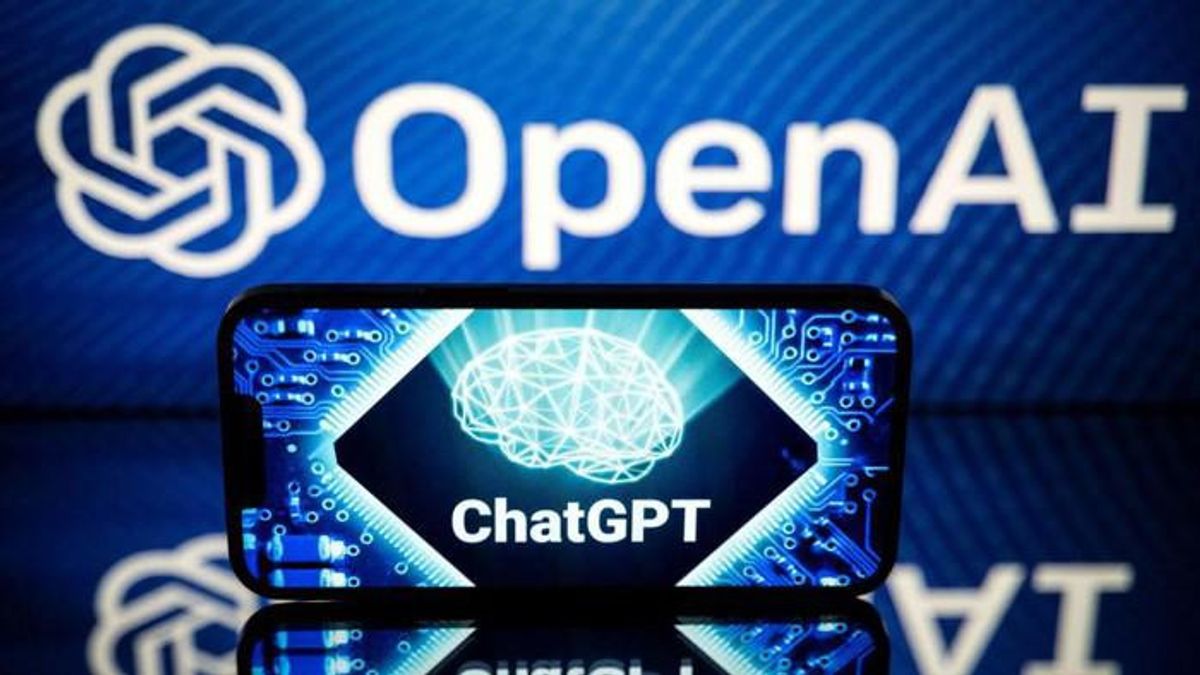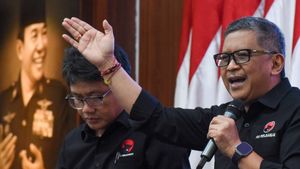JAKARTA - Academics responded quickly to the development of artificial intelligence-based chatbots known as Chat Creative Pre-Trained Transformers or ChatGPT. Chatbots on the one hand are indeed making it easier. But on the other hand, it turns out that it also has a negative impact, especially in the world of education.
As happened in China. Students with virtual private networks (VPNs) have started relying on ChatGPT to do almost the entire schoolwork.Agency France-Presse (AFP) says more than a dozen students use it to write essays, solve science and math problems, and generate computer codes.
ChatGPT has helped me do homework faster. Without a ChatGPT, it can be 4-5 hours every day. Mom stays up late until I'm done, and we keep fighting because of that. Now, with ChatGPT so much faster," said Esther (11), while attending competitive school in Shenzhen's southern big city.
Although more practical, this pattern actually makes students tend to be lazy, have no fighting power, and have no critical thinking. In fact, said the professor of information technology at the University of Indonesia (UI), Riri Fitria Sari, one of the most valuable things that students can develop is critical thinking.
"If the answer is always available at the tip of the finger, they feel there is no need to think for themselves," Riri said in a webinar with other UI professors entitled Ethical Artificial Intelligence Usage of ChatGPT in the Academic Environment on March 25, 2023.
ChatGPT is smart but that doesn't mean it's perfect. As a machine, it's likely to misunderstand context so big that it has the potential to produce incorrect outputs.
ChatGPT is trained with data, and if the data is biased, the machine will also be biased. After all, there is no original thought from students, for example in essay work, even later the resulting essay tends to plagiarism, added Riri.
In line with UI Professor for Artificial Intelligence (AI) and Robotics, Wisnu Jatmiko. How ChatGPT works is to collect various data on the internet network. So that the resulting text is similar or identical to existing copyrighted content.
If this is used as an essay in its entirety, of course it has the potential to go to copyright ethics.
The increasing use of ChatGPT raises legal and ethical issues related to copyright, privacy, abuse, bias, and transparency. It is important for users to be aware of this problem and take steps to reduce it," he said on the same occasion.
UI Lecturer Fuad Gani has the same opinion. The use of ChatGPT provides many benefits including increasing student involvement in lectures, collaborations, and the breadth of alternative accessibility of learning sources.
However, on the other hand, there are various challenges and concerns, especially regarding honesty, integrity, academics, and plagiarism.
In many universities, lecturers have been looking for ways to convince students that copying only from ChatGPT can have bad implications. ChatGPT assesses something true based on what is most popular. Tends of misinformation, disinformation, and malinformation," said Fuad.
Even so, it does not mean refusing. It's just that it takes changes or adjustments to the paradigm of education and learning. Universities, especially UI, need to take maximum advantage of the positive side of ChatGPT technology, as well as minimize its dark side in the world of education.
At the university level of policy and faculty, among others, it is necessary to increase the role of research ethics commission at each faculty. At the operational level, lecturers need to set clear guidelines for the use of true artificial intelligence," said Fuad.
Singapore has decided to support the use of artificial intelligence tools such as ChatGPT in schools. However, there are still limits. The goal is just to increase the effectiveness of learning.
There is a professional discussion group among our educators to explore its use in educational circles. At the same time, our educators will continue to teach students to understand basic concepts and guide students not to depend too much on technology devices," said Singapore's Minister of Education, Chan Chun Sing.
Chun Sing likened the generative AI tool to the use of a calculator that supports students in learning mathematics, but does not replace the needs of those who must first master basic mathematics.
'ChatGPT can be a useful learning tool only if students have mastered basic concepts and thinking skills. In a world that continues to grow, we must also teach our students to learn and work with today's tools, like the appearance of the first calculator," said Chun Sing.
Unlike France. One of the best universities in France, French University Sciences Po actually firmly prohibits students from using ChatGPT to complete their academic duties. The related violations are categorized as fraud and plagiarism according to the ERUDA.com report.The heaviest sanctions are expelled from universities.
"Without transparent reference, students are prohibited from using software for the production of any written works or presentations, except for specific course purposes, under the supervision of course leaders," the university said in an official statement.
A number of world universities are also preparing policies related to the use of the chatbot. Including in the United States and Australia.
In fact, universities cannot be separated from future competition, especially in terms of technology. Universities should accept that artificial intelligence tools will continue to develop and become increasingly important in various disciplines.
"Universities need to issue flexible and broad guidelines. The evolution of technology cannot be stopped and always gives rise to a series of continuations," added Fuad.
The English, Chinese, Japanese, Arabic, and French versions are automatically generated by the AI. So there may still be inaccuracies in translating, please always see Indonesian as our main language. (system supported by DigitalSiber.id)









